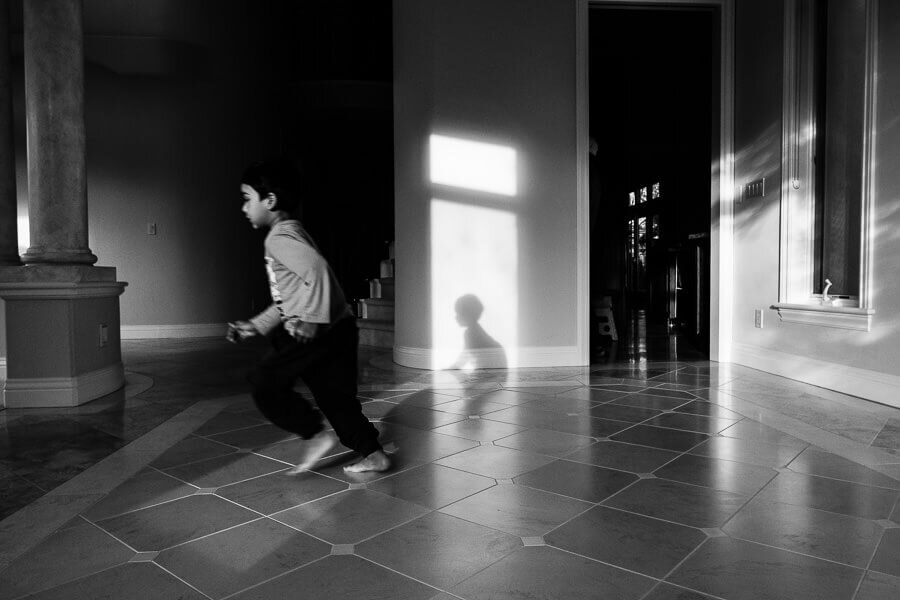How to be a more resourceful photographer in 2020 – a hint of tough love
As the year is coming to an end, I've reflected on some things that I've most likely done myself in the past year or few – and how we photographers can do a bit better in being resourceful instead of going through our days in reaction-mode and making default decisions.
Repurpose *everything*
A photography business can easily turn into a 24/7 job – and one way to combat this is to repurpose anything and everything you can so that you can simplify your days and spend less time working.
Anything you do regularly for your business:
create templates to reuse any time you have to write a new one (emails, contracts, invoices)
create a process list (a checklist you can go through every time you do this task, so that you're sure to not miss a step)
Content creation:
use snippets of your blog posts as social media captions
use your blog post as a base for a Facebook Live or YouTube video
share pictures of your products on social media, on your blog (you've spent a lot of time creating them for the client, so make them work for you, too!)
share testimonials/happy messages you get from clients on social media, on your website, as the text on your blog posts
Do your own research first
There has never been this much information at our fingertips – how tos, reviews, comparisons – yet we often ask others to give us the information we are looking for. This is particularly prevalent in Facebook groups for photographers:
"Which lens is best for documentary family photography?"
"What client management software is best?"
"I want to start doing wedding photography – shower me with your best tips!"
Let's say it would take 15-30 minutes for us to Google the exact same thing, and read a few articles or product descriptions. When we crowd-source in order to get the information, and 30 people take 5 minutes each to think about the question and give an answer, we've just asked for 2.5 hours of other people's time – and gotten a lot of the information we would've found with a quick search.
Another problem with the crowd-sourcing is that depending on the type of question, we might even get the completely wrong answers! This has happened to me with questions surrounding permits, laws, or taxes – because every country, state, county and city can have different rules. We never know where the others got their information from in the first place. In this case I've found it best to always talk to a tax/law/permit person in my area.
Another problem is that *nobody* out there can tell us what to charge, what gear we might like best, or what system or software would work best for us.
You know yourself, your numbers, and your business best.
What I've noticed is far more fruitful is to see what information is out there – and THEN ask others an intentional, specific question:
"It seems that the 35mm lens is most popular for documentary family sessions – would you disagree, and why?"
"I'm debating between 17hats and Honeybook – I really like that 17hats connects with my bank account so I don't have to input my expenses. It seems Honeybook does not have this feature – how much time do you spend inputting this info per month?"
"I've been researching wedding photography, and it seems that it would be very important to have a good contract in place. It seems the LawTog contract covers most things – has anyone found a better contract out there?"
"Hey tax person – it seems that I can add home office furniture as an expense, can you verify this for me?"
This way we're more informed about the subject which helps us to not be as easily swayed by someone else's strong opinions or unsure information.
Give yourself plenty of runway
Another way photographers are not taking advantage of all the information out there is that we wait until the last minute to do our research and crowd-source in panic mode:
"Help! I'm photographing my first birth tomorrow, what should I be aware of?"
Ideally we should research any new type of session or service we provide before we offer it to someone – or at the very latest do the research right after we've booked. Researching in advance helps us remember the information a lot better – which in turn makes us feel more confident in the moment and far less frazzled.
Getting the word out there does not have to be expensive
We don't need a ton of different paper products – business cards, brochures, pamphlets, magazines.......... to spread the word. Paper gets tossed away - but how you make someone feel, that sticks with them!
Whether you're an extrovert who loves to talk to people in person, or an introvert who would rather do your marketing from the couch (Hi!) – you have a resource that's free for you to use:
Your words.
What you say on social media, on your website, in your blog posts, when networking in person – and even on those paper products – is what matters. How you use your words determines if your work will resonate with the right people.
So before you pour a ton of money into trying yet another flyer, Facebook ad, or some other expensive strategy – think about were you can make a change with little money. What changes can you make in the way that you show up with your words?
Creativity beats a shiny object
Often when we're faced with a new type of project or session, we end up buying or renting some new gear or props – even if it's just a one-off event!
What if instead of asking "What is the best lens/camera/backdrop I could buy for this?" we would ask:
"How can I do *my thing* with this subject, using the gear I already have?"
You're more likely to do an amazing job with gear you already know well, instead of attempting something new with unfamiliar equipment.
Yes – there are times when we really need an upgrade of gear to get a desired result. But I'd like to challenge you to think critically about when you're legitimately in need of new equipment, and when you're thinking of buying it simply as a reaction to something new.
Let go of what no longer serves you
The end of the year/the beginning of the new year is a great time to take stock of...
what equipment, software, files have piled up
which gear and software did you use last year – and which ones didn't you
which systems and habits worked for you in the past year - and which ones didn't
what have you failed to use/take advantage of, but want to make sure that you do? Set reminders to learn/use these things.
Letting go of some of the things you aren't using could save you money – for example disabling your subscriptions, registrations and software that you aren't using. Letting go could also make you money – for example if you sell those lenses you haven't touched all year. (Or let's be honest, it might have been three years.)
If you liked this blog post, you might also enjoy this one on being a minimalist photographer in a maximalist industry.







